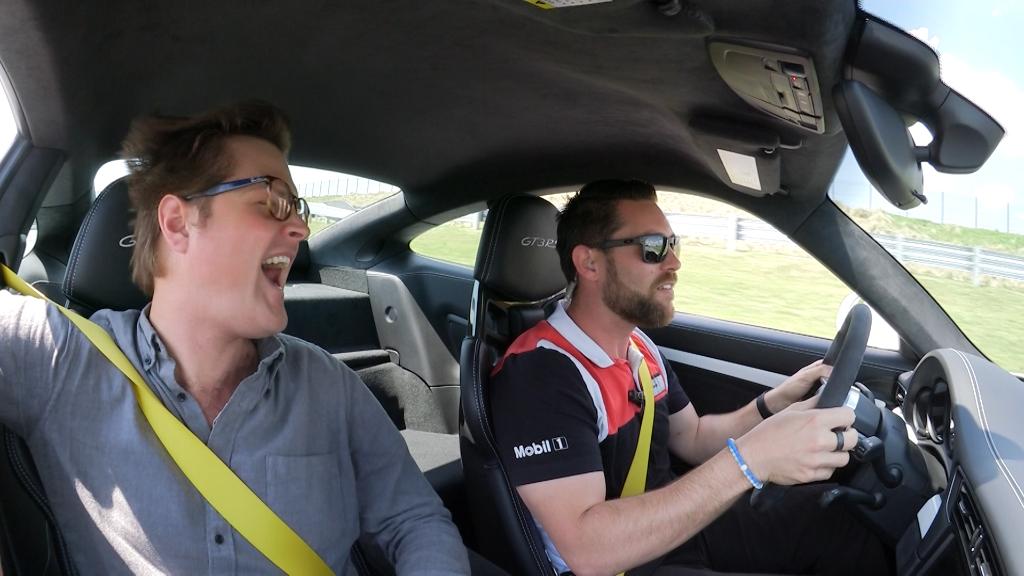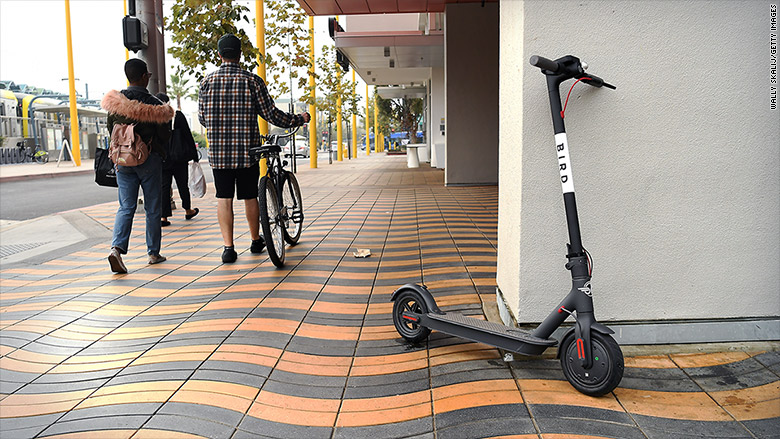
A souped-up kids' toy is turning into a hot transportation option for adults.
Cities are taking interest in electric scooter-share systems as an affordable commuting alternative to cut down on pollution and traffic congestion.
The electric scooters, which weigh between 30 and 40 pounds, reach speeds of about 15 mph.
In September, Santa Monica, California, became the first U.S. city to have an electric scooter-share service. Users find and unlock one of the more than 1,000 scooters with a smartphone app. A ride costs a minimum of $1, and then .15 cents for each minute of riding throughout the beach town.
Bird, the startup operating the scooter-share, picks up the scooters every night to charge them, and places them around Santa Monica each morning for commuters.
The company was created by former Uber and Lyft executive Travis VanderZanden after he realized ridesharing services didn't have a positive impact on traffic congestion and carbon emissions.
Related: Electric bicycles emerge as a hot trend in the U.S.
Since its September 2017 launch, Bird's system has served more than 50,000 riders who have taken 250,000 trips -- more than half of which have been in the last month. It's since expanded to Venice, California, and some neighborhoods in Los Angeles and San Diego. Bird plans to expand to dozens of markets by the end of 2018.
Competitors, backed by Silicon Valley investors, are emerging. Two dockless bikeshare startups, LimeBike and Spin, have announced plans to deploy electric scooters in cities this year.
Meanwhile, another rival, URB-E, has sold thousands of foldable electric scooters to consumers since 2015. The company's electric scooters range in price from $900 - $2,000.
Late last year, it began renting URB-Es on the University of Southern California's campus. It plans to launch its own shared service in cities such as San Francisco and New York by the end of the year.
"It took a couple years for the mass market to realize this is not a toy industry or for rich people," said URB-E CEO Peter Lee. "But this solves an everyday commuter problem, no matter your social class or how much you make. It was seen as a novelty three years ago, but now it's seen as a necessity."
Electric scooters have also captured the attention of Mayor Pete Buttigieg from South Bend, Indiana. The city, which has limited transit options due to its moderate density, is interested in using them as a way to improve transportation access. South Bend was one of the first to embrace dockless bikeshare systems, which allow people to park rented bikes on public land.
Related: It's a make-or-break moment for U.S. bikeshares
"We love to be early adopters," said Buttigieg. "If we satisfy the safety puzzle, we would be open to welcoming the technology."
But there aren't clear best practices for where electric scooters can be ridden, how fast they can go or if a helmet should be worn.
Santa Monica recently took the electric scooter startup Bird to court for not having an appropriate business license. On Wednesday, Bird agreed to pay over $300,000 in fines.
"We need to make sure these new transportation systems are lawful and safe for users," Constance Farrell, a spokeswoman for the city of Santa Monica told CNN. "We would like to see motorized scooters continue to operate in the city. They are in line with our focus on multi-modal living and carbon-light living."

According to Farrell, there have been eight accidents, including one with a serious head injury, in Santa Monica after the scooters rolled out. In some other cases, police officers have issued tickets for improper use of the scooters. Users are required to have a driver's license, shouldn't ride on sidewalks or have other passengers on board.
Bird has given out free helmets to some riders and tells its users to ride in bike lanes, but some users ride on sidewalks, and most U.S. streets don't have bike lanes.
Spin president Euwyn Poon believes riding on the sidewalk at a reasonable speed is what makes sense. The scooters take up less space than bicycles.
"The global community of cities is going to have to figure this all out for scooters," Buttigieg said. "These trends can move incredibly quickly. That's exciting, and a little scary."

